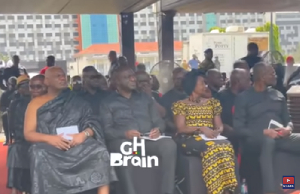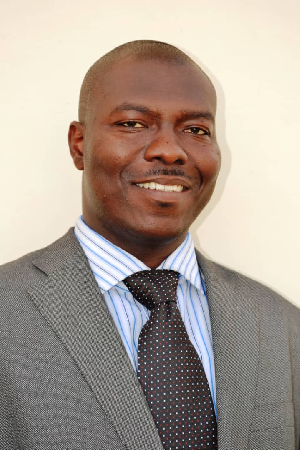General News of Monday, 8 February 1999
Source: --
Apraku and others react to budget statement
Accra (Greater Accra) 8 Feb. '99
Dr Kofi Konadu Apraku, minority spokesman on Finance, said at the weekend that the medium-term macro- economic targets as well as this year's economic targets in the budget statement are ''too optimistic'' and may not be achieved. He said the figures arrived at, based on last year's projections, are ''suspect'' since Center for Economic Policy Analyses (CEPA) and IMF, among other institutions, have expressed doubts about how those figures were arrived at. ''This is a lame duck budget from a lame duck government. All they have been giving us are figures; if inflation and others have really come down as mentioned, interest rate should come down further.
''I doubt if the deficit declared is correct because this quarter alone, 50 billion cedis has been reserved to clear arrears,'' Dr Apraku said. The projected macro-economic target for the medium-term in the budget statement are an average real GDP growth rate of 5.8 per cent and an end of period rate of inflation of five per cent. Dr Apraku said the improvement in the economy does not reflect in the standard of living of Ghanaians. The positive things about the budget, he noted, are the financial sector reforms which include the introduction of new financial instruments like Mutual Funds and Unit Trust which, when well implemented, will be of great benefit to Ghanaians. He said there are no innovations in the budget or policy to bring about the needed change in the economy. ''For example, you cannot gain any degree of improvement in agriculture without irrigation, and I did not hear anything about that.'' On the promotion of made-in-Ghana goods, Dr Apraku said so long as interest rates continue to be high, the private sector and industry cannot be competitive. ''Before you can promote something, the quality should be good and the price competitive''. Dr Apraku said government should note that the private sector in neighbouring countries are getting a better deal and very soon Nigeria will puts its acts together and Ghana will be left behind. Mr Yaw Osafo-Marfo, minority spokesman on Trade and Industries, said: ''as far as Vision 2020 is concerned and the fact that this financial statement is the last before we enter the millennium, the budget is disappointing''.
There is nothing in the budget to transform the economy. So long as Ghana continues to be a producer of raw materials, ''the emphasis should be on the transformation of these raw materials into finished products''. Mr Osafo-Marfo said so far as the Vision 2020 is concerned, the economy is not on target, adding: ''the government's own indicators in that document are defeating their targets''. He said the average rate of growth per annum from 1997 in the document should be eight per cent over the past two years, and, according to the medium-term projections, the economy is performing three per cent below average.
Again, he said, earnings from non-traditional exports should be about 1,250 million dollars but it is now estimated to be bringing in 428 million dollars. He said, however, that medium-term targets in the budget may be achievable due to the expected revenue to accrue from the Value Added Tax (VAT). An Economic Consultant, Mr Kwame Pianim, said GDP growth has been around five per cent since 1995. "There is the need to reverse this trend". He said with the "kind of grace of God agriculture" being practiced in the country, it is difficult to predict that projections made by the goernment in the three year programme would be achieved.










